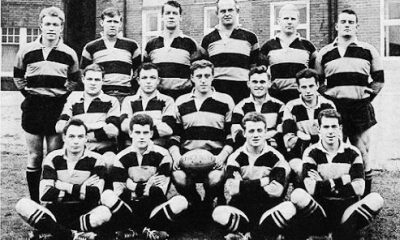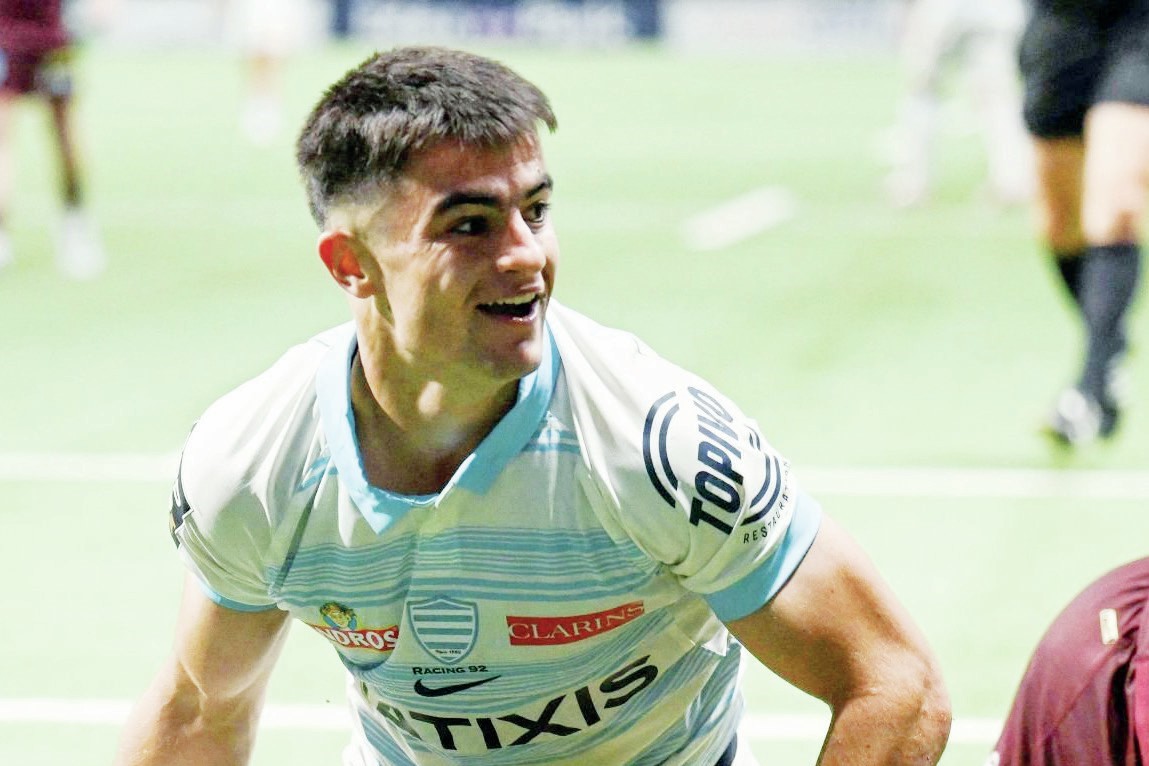 Gorseinon RFC have done more than their bit for the international game over the last half century – from Onllwyn Brace to Norman Gale, Lewis Jones to Richard Moriarty.
Gorseinon RFC have done more than their bit for the international game over the last half century – from Onllwyn Brace to Norman Gale, Lewis Jones to Richard Moriarty.
Their collective careers spanned every post-war decade, from the Forties to the Nineties. That tradition has now been placed in the fearless hands of another local boy whose ability to double up as the last line of defence and the first point of attack will be a feature of the Lions‘ Test series in Australia next month.
When he leaves Heathrow a week tomorrow, Leigh Halfpenny will be the first Lion from Gorseinon since Jones blazed the same trail in 1950. In doing so as a replacement, Jones made a bit of aviation history, as the first Lion to reach the Antipodes by air instead of sea.
On the face of it, all would appear to be fine and dandy at Gorseinon, a small town sandwiched between the Jacks of Swansea to the east and the Turks of Llanelli to the west. That, according to the locals, entitles them to an amalgam of the nicknames, their very own identity of neutrality: ‘The Jurks.’
Gorseinon is that kind of place, proud that its native sons include a boxer, Colin Jones, who fought for the world welterweight title three times, and a few footballers, not least the former Wales winger Leighton James.
Most of all, it is proud of its rugby players and that pride could be seen bursting out all over the place the other night when Halfpenny cut the ribbon to open the Leigh Halfpenny Pavilion, adjacent to the Lewis Jones Bar and Restaurant at the Welfare Ground.
The homely ceremony evoked memories of how it used to be in Welsh rugby pre-professionalism, the old-fashioned values of the local club as a focal point for the community.
Halfpenny may play his rugby 45 miles away in Cardiff but he still lives in Gorseinon which meant it was nothing more than an early Friday evening stroll back to where it all began.
For that reason alone, he must be the humblest of superstars. There could be no doubting what the club means to him and what he means to it. Nor can there be any doubting that all is far from well at Gorseinon RFC.
They have taken a pounding this season and that pounding will resume next season and go on for as long as Swansea City FC punch above their weight in the Premier League. To suggest that Gorseinon may be feeling the pinch as a result is an understatement akin to saying that the Aussies don’t mind losing the Ashes.
Like every other neighbouring rugby club in the Swansea area, they have taken a hammering at the gate. For the first time in a country where rugby always used to have a captive audience, the little clubs are fighting a losing battle.
The counter-attraction of the Swans playing at home and their matches being shown live in local pubs has had a seriously shrinking effect on Gorseinon’s gates over the season. They have been halved.
“The Swans’ soccer success impacts on us in two ways,” club chairman Ian Murphy says. “It hits us financially and it also affects our ability to put out a youth team.
“Admission to our first XV home games costs £4 for the programme and that usually generates enough over the season to keep us in the black. Two hundred is a very good gate but a hundred’s good because that’s £400.
“Since the Swans got into the Premier League, those figures have gone down. So many of our potential spectators are Swans’ supporters that sometimes our gate can be as low as ten – in other words £40.
“The other problem with our junior and youth teams is that we keep losing players. They ring up and say: ‘Sorry, can’t make it this week. The Swans are home and that’s more important.’
“That means we’ve got to get on the phone and ring round to get enough players to save us from having to call the fixture off. The problem then is that when we call other clubs in the Swansea area, they tell us they are in the same boat.
“Swansea City is the dominant attraction on a Saturday afternoon, understandably so. Our gates are down by 50 per cent. I’ve been involved in the club for many many years and it’s never been like this.
“I don’t think the WRU realise what it costs to run a club like ours. And we don’t pay our players a penny. They get free beer after the game if they win. If they lose – nothing.” Halfpenny has kept the club afloat through his generosity in donating boots and signed jerseys, enabling the club to bridge the short-fall and break even.
“We have a few smokers’ evenings when we hope to make around £5,000,” Murphy says. “Anything associated with Leigh is the star attraction. You only have to ask him and he’ll bring along a signed jersey or something else. He’s an angel.”
Like many in Welsh rugby, Murphy is worried about the game losing the fight for the hearts and minds of the young generation. “There is a danger of that,” he says. “I’ve been a rugby and cricket man all my life but when the Ospreys play at the Liberty Stadium it tends to be a very poor atmosphere. With the Swans, it’s bouncing.
“So many have told me they don’t go to the Ospreys any more but they do go to see the Swans. The WRU must realise that because they are losing a fan base.”
The challenge for the game as a whole will be twice as formidable next season given the presence in the Premier League of not one Welsh club but two whose territory spans most of the rugby belt from east to west and back.

1 Comment
You must be logged in to post a comment Login
Leave a Reply
Cancel reply
Leave a Reply
You must be logged in to post a comment.

British and Irish Lions
Henry Pollock’s rise to stardom continues with 2025 British and Irish Lions selection

British and Irish Lions
Maro Itoje named British and Irish Lions captain for tour of Australia























Pingback: Belcampo Anya